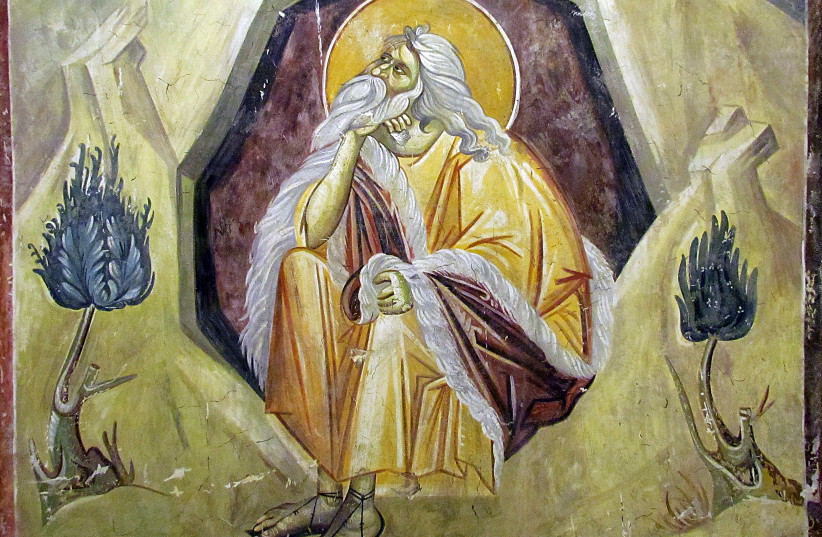The door is opened; someone jostles the table and the wine sloshes a bit in the glass – it is the annual ceremony of Elijah’s arrival at the Seder.
We await the one guest at the Seder who never seems to show up. But why is that guest Elijah, and why do we expect him to come now?
Elijah in Jewish tradition is the herald of redemption – he is chosen to announce the coming of the Messiah. It makes sense to choose Elijah because in the Bible he does not die – he is carried up to heaven in a whirlwind (II Kings 2:11). Since Elijah did not die, he should be the one to return.
There are a few times in the year when Jews anticipate the coming of Elijah: on Passover, at the end of Shabbat, at the end of Yom Kippur and at a brit milah. There are tales and hopes of other visitations, but these four are the central times of expectation. Why?
There are specific reasons, of course. For a brit milah, for example, there is a chair set aside for Elijah. Some say this is because any child born could be the Messiah. More homiletically, the Rabbis point back to the Israelite worship of Baal and the prophet’s fury at their betrayal. In anger at Israel, Elijah said to God, “The Israelites have rejected your covenant” (I Kings 19:10). God doesn’t wish the indictment of Israel to stand, and so has decreed that Elijah attend every occasion on which the Israelites fulfill the covenant – in other words, the brit (covenant) of milah (circumcision).

At the end of Shabbat, as we go into the week, we sing for Elijah to come. There are many explanations, but one sweet one is mathematical: It is possible the Messiah could come any day of the week. Since Elijah obviously cannot come on Shabbat itself, and cannot come Friday, because Israel is preparing for Shabbat, the likeliest moment is when Shabbat ends!
Both Yom Kippur and Passover are holidays of redemption. Therefore, they, too, are logical times for Elijah to come. We have been cleansed of our sins on Yom Kippur, an appropriate time for deliverance. And Passover, of course, is a holiday of liberation from slavery, a redemption in anticipation of the final redemption.
There is a deeper message in all of these times that we should carry into our Passover Seders. For those engaged in Jewish life, a connection exists for the messianic moments. What the end of Shabbat, the end of Yom Kippur, Passover and a brit milah all have in common is that they are family times. Each is an occasion when everyone in the home is gathered for a meal, or a prayer, or a ceremony, that celebrates the heart of the Jewish tradition, the family.
If we did not understand this from observing the moments themselves, the reading on the holiday ensures our awareness of this beautiful idea, for it is exemplified in the words of the haftarah we read on Passover. What will happen when redemption enters the world? Listen to Malachi (3:23-4):
“Behold, I will send you Elijah the prophet before the coming of the great and terrible day of the Lord. And he shall turn the heart of the parents to the children, and the heart of the children to their parents.”
Why does Elijah come? To bring families together. What does it really mean to be redeemed? We cannot fully know, but it is clear that the Jewish tradition assumes that a home filled with faith and love is a foretaste of redemption.
May we all have the merit of celebrating the Passover with people we love. ■
The writer is Max Webb Senior Rabbi of Sinai Temple in Los Angeles and the author of David the Divided Heart. On Twitter: @rabbiwolpe.
